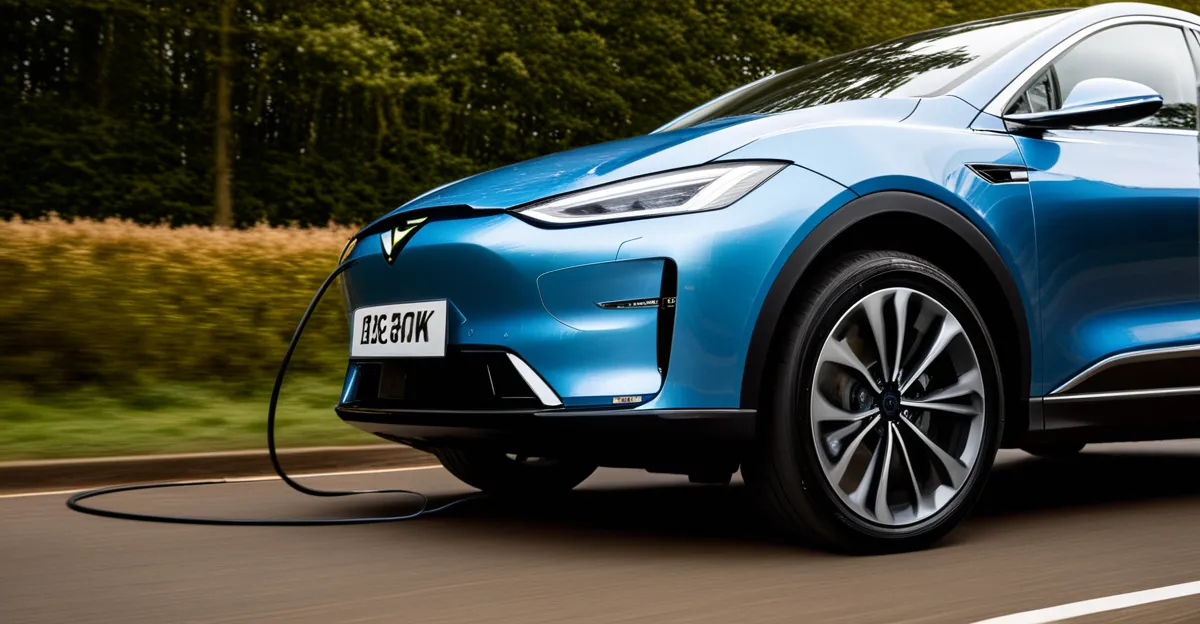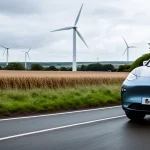Immediate Impacts of Electric Vehicle Adoption in the UK
The adoption of electric vehicles (EVs) in the UK is causing significant shifts within the UK automotive sector, fundamentally altering production models and supply chains. As EV adoption impact grows, manufacturers face the urgent task of transitioning from traditional internal combustion engines to electric powertrains. This requires extensive adjustments in production lines, new supplier relationships, and sourcing materials like lithium for batteries.
Early in this shift, manufacturing adaptation includes increased automation and the integration of specialized EV components, such as battery packs and electric motors. These changes are reflected in the altered supply chains that now prioritize raw materials for battery production and reduced reliance on conventional engine parts. This reconfiguration impacts not only vehicle assembly but also logistics, with supply routes adapting to meet the demands for different components.
This might interest you : Is the Future of the UK Automotive Industry Dependent on Technological Innovation?
Simultaneously, consumer demand patterns reveal a growing preference for electric models, driven by incentives and rising environmental awareness. This evolving demand accelerates the pace at which manufacturers optimize their EV offerings. Understanding these immediate impacts underscores how the electric vehicles UK market is reshaping the entire automotive ecosystem, setting the stage for deeper changes in production and consumption alike.
Evolution of Automotive Industry Employment
The EV employment impact in the UK automotive sector is tangible, as traditional roles shift and new opportunities emerge. Transitioning from internal combustion engines to electric vehicles demands different skill requirements. For instance, workers need expertise in battery technology and software systems, rather than mechanical assembly alone. This shift causes a redefinition of job types, with increased demand for technicians skilled in electrical diagnostics and battery maintenance.
In parallel : The Future of Electric Cars in the UK: What Are the Implications for the Environment?
While some manual assembly jobs may face displacement due to automation and new technologies, the overall UK auto jobs landscape is evolving rather than shrinking. New positions are created in fields like battery pack manufacturing, power electronics, and EV software engineering. The pace of job transformation varies across regions, with automotive hubs experiencing concentrated workforce changes.
To support this transition, industry training and upskilling initiatives have been launched, focusing on equipping workers with advanced skills needed for EV production and maintenance. These programs are critical to enabling a smooth workforce transition and maintaining employment levels while fostering innovation in the UK’s automotive ecosystem. Encouragingly, enhanced collaboration between manufacturers and educational institutions helps tailor training to industry demands, helping workers adapt effectively to the evolving marketplace.
Transformation of Manufacturing and Supply Chains
The EV manufacturing UK landscape is undergoing a profound transformation. The shift from internal combustion engines to electrified platforms demands retooling of factories and adaptation of production processes. Traditional suppliers that once focused on engine parts are now giving way to those specializing in electric components and battery systems. This transition significantly reshapes the automotive supply chain, requiring new partnerships and logistics to handle critical materials like lithium, cobalt, and nickel essential for batteries.
Localisation has become a strategic priority in battery production UK, aiming to reduce reliance on overseas sources and mitigate supply risks. Establishing domestic battery plants not only shortens supply chains but also boosts the UK’s role in the global EV market. Moreover, these facilities facilitate integration with vehicle assembly lines, enhancing manufacturing efficiency.
Supplier relationships have evolved to encompass technology providers and raw material processors, reflecting the complexity of EV production. Logistics networks adapt as well, with a focus on transporting delicate battery components and ensuring just-in-time delivery. Consequently, this EV adoption impact drives comprehensive changes across the manufacturing and supply chain ecosystems in the UK automotive sector.
Infrastructure Development to Support EV Growth
Supporting the accelerating electric vehicles UK market demands substantial upgrades in UK EV charging infrastructure and national energy systems. The expansion and modernisation of charging networks are critical for managing the increased demand as EV adoption impact grows. This includes deploying fast chargers in urban and rural areas to ensure accessibility for all drivers, easing range anxiety and encouraging wider adoption.
Grid readiness is another crucial aspect. The existing power grid requires upgrading to handle higher loads, integrating renewable energy sources, and enabling smart grid technologies. These advancements improve energy efficiency and reliability while supporting the growing fleet of electric vehicles.
Both public and private sectors play pivotal roles in this infrastructure roll-out. Government investments and incentives stimulate market confidence and funding for large-scale projects. Meanwhile, private companies contribute through technological innovation and infrastructure deployment. Effective collaboration aligns interests, accelerates progress, and addresses challenges such as charging point standardisation and geographic coverage.
Ultimately, a robust charging infrastructure, combined with a modernised grid, forms the backbone of the EV adoption impact in the UK. This foundation ensures the sustainability and scalability of electric mobility, reinforcing transformations in the UK automotive sector.


